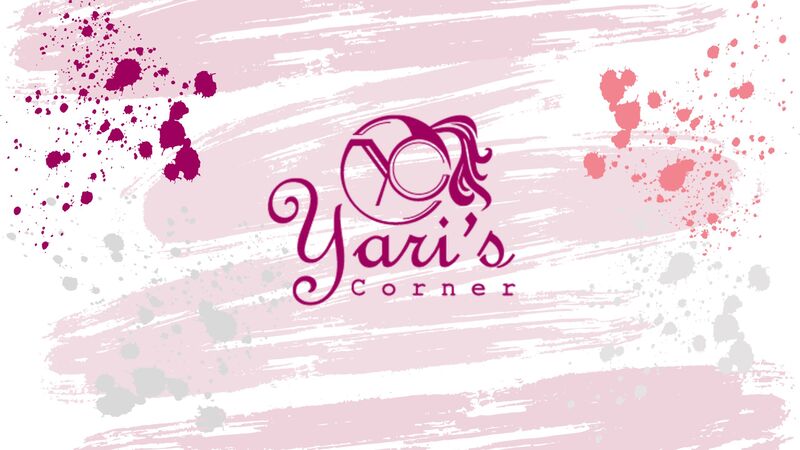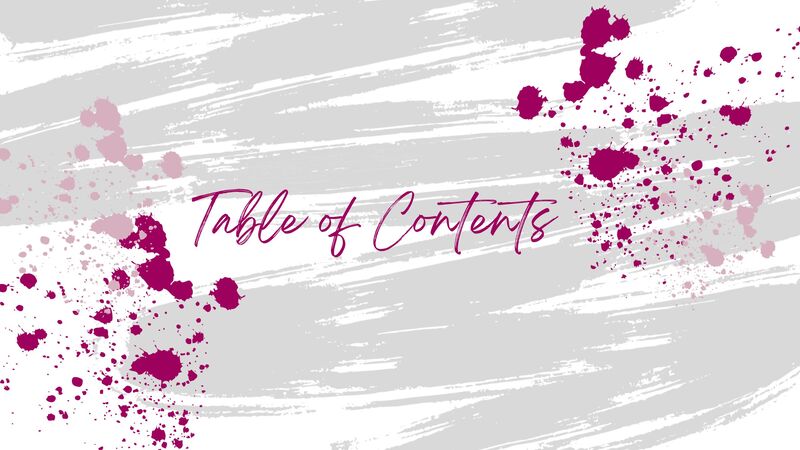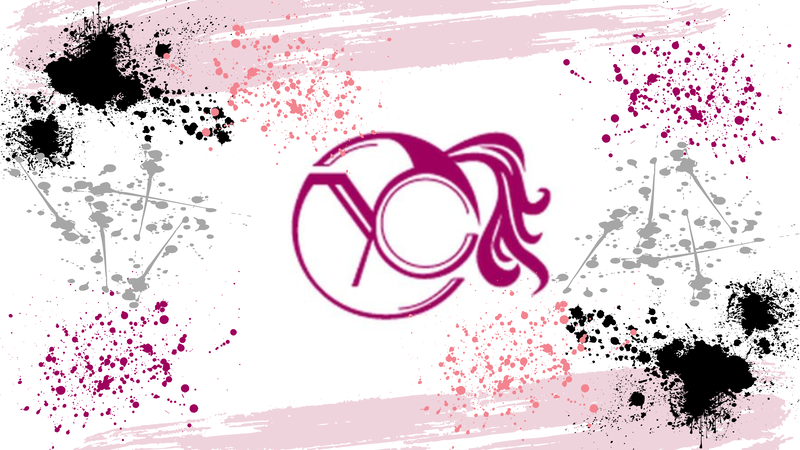|
It’s a little difficult to come away from routines that we are so used to. Especially if we have done these routines over and over. When we engrain routines into our lives through repetition, they become habits that are harder to break.
If you are an individual who has found it hard to trust in the past because of hurtful trauma, then I encourage you to look at your daily social habits. Once you do, you may find that there are points in your past social interactions that may cause you some embarrassment as you reflect on them. I have them too. And although these events will forever live in our memory and past, we can learn from these experiences in order to make sure the same mistakes will not be repeated. For some of us, we constantly live in those hurtful moments in which we were hurt by others. We feel as if we are justified in living in the past because no consequence was handed to those who injured us emotionally. However, like a drop in a still water that sends riffs throughout the surface, this causes more pain. A person’s unwillingness to continue with their lives makes them absent to those who love them. This is hard to imagine, but others who are close to you feel that anxiety and stress in ways that you may never know. Therefore, when you choose to trust, you are essentially letting go of that pain, and relieving those around you from reliving it with you. Freedom is then obtained by falling into the unknown, and trusting that you will be okay. Here are 5 reasons why trust will gain you freedom. #1 Trust eases anxiety Take a deep breath, hold it for 3 seconds, and let it go slowly when you exhale. The slow release that you feel as the air leaves your chest is exactly the type of ease that you should experience when you begin to truly trust again. When you lack trust in people, there are things that will inadvertently cause you anxiety. Most individuals do not go throughout the whole day plotting 3 or 4 steps ahead of another person. That is not normal for those of us who trust. However, those who lack trust will be always thinking of the next steps ahead. You cannot always anticipate the next move from anyone. There are way too many variables ahead that you have to plan for and each person is liable to make a move that you never even saw coming. Think of all the time that you have wasted in trying to get ahead of someone who may or may not have had malintentions for you. The fact that you have not even waited to see this individual’s true intention should be a red flag that you have deep rooted trust issues. Instead of wasting precious time in anticipating other’s moves, reallocate that energy into living a life full of love and fulfillment. Trust allows for this type of life. Anxiety does not. #2 Trust creates space for growth The ideal predator of the animal world encircles and traps their prey allowing for no escape from them. In this scenario, distrust is your predator, and you are its prey Distrust leaves most of us full of fear, paralyzed to continue on with life. You are unable to trust yourself to make the right choices. You are unable to create meaningful relationships because you distrust those around you. You are unable to feel safe because you are unable to trust your environment. How can your character grow in such a harsh mental terrain? Think about the release that I mentioned in the first reason why trust equals freedom. Think about the growth that you would attain if you moved yourself from such a barren wasteland to a garden full of life. Your life and heart will have ample amounts of nutrition in this new environment to foster growth for years to come. Although it takes more than trust to allow yourself to feel safe enough to continue to build, it certainly is one of the most important factors that will initiate such growth. #3 Trust allows you to become connected with those around you Connecting with others is very similar to effective communication. In my article 9 Easy Ways to Build Trust with Family, I discuss tips on effective communication. These tips are not limited to family members. They can also be applied to others around you. Trust allows for you to be fully engaged while communicating for several different reasons. Can you imagine being fully engaged in a conversation with another person if you thought that that individual had ulterior motives? I definitely cannot. Being around other people should not automatically make your internal hard drive go to war with itself. This is a symptom requires further exploring. When you take down those walls put in place to protect you from potential threats, you encourage others to do the same. I have seen multiple YouTube channels in which the same repetitive concept is displayed. The concept of the wealthy being completely out of tune with those of us who live everyday lives. This concept is quite interesting to me because, in a way it relates closely with my point. Connecting with others keeps you grounded to reality. I find it fascinating that these Youtubers have enough insight to see that, however, they do not see the same in themselves. Moreover, they lack the know-how to connect with their audience on a wider scale. How can we connect with an entertainer that does not share similar experiences, or is closed off to trusting those around them? I encourage you to think about this, and think about how this connects to you in your everyday life. How can you connect with others if you are closed off and think that no one really has the best intention for you? What type of individual would you be if you are not held back by someone or something? Would you be more reckless? For some the answer is yes. At our core, humans in general yearn to be part of a group that is accepting of them. It is the very reason why social groups flourish, and on a much smaller scale- you are happier when you see a group of friends that you haven’t seen in a long time. #4 Trust gives your life more meaning While trust allows you to connect with others, there are other ways that it helps your life have more meaning. If you are a trusting individual, your life will not be defined by a never ending battle. Trusting any process allows for any set goal to flourish on its own. The universe will respond to your willingness to any event that may come your way, and allow for success in each of your goals. Can you think of any time in which you held some reservation about a choice, just because you were full of uncertainty, doubt, and were paralyzed to go on? Later you found that the choice had slipped through your fingers. Did you realize then that doing nothing was the incorrect path? Life itself is full of twists and turns that branch off into more twists and turns. You have to be able to trust that you are able to navigate these paths with the skills that you learned from the past. #5 You become more resilient No matter how much they hurt, past events have encouraged you as a person to grow. You are able to take those experiences over to the next life event that comes your way. The end result: you become extremely resilient- able to overcome adversity as it comes your way. While this blog post remains light and full of positivity, allow me to instill some reality. The truth is, the more you trust the higher the chance that your trust in others will be taken advantage of in some shape or form. If you are currently reading this post then you are looking for reasons to trust others. Which means you may (or may have not) undergone a traumatic event that has caused you to think distrusting others was and maybe still is a bad idea. The good news is that you are still here. The hard past did not end you. You may be guarded, but you have the chance right here, right now, to turn that past into scar tissue. Your scars are what make you unique… and beautiful. You have the chance to overcome the pain, and share with others your experiences- just as I have. Don’t miss the opportunity. I’m rooting for you. Conclusion Make no mistake, your past- as painful as it may have been did not break you. Become free from those mental constraints that hold you back because of these 5 reasons. I guarantee that life will become much brighter and full of hope. Leave your comments below on how you feel trusting others will help you achieve your personal goals. I look forward to hearing from you soon.
0 Comments
Initially when I first started to write this blog post, I thought of a colleague of mine who I like to talk to. She’s an amazing person- smart, intuitive, and fun to talk to.
One night while we were working together, she and I were talking about a scenario that happened earlier that day. Her analysis of the situation was “You should always remember that people at work are not there to be your friends.” This statement stuck with me and for many reasons. The first reason was because it gave me insight as to her train of thought. And the second was because it made me think from a different perspective. Is the growing masses thinking in this manner? The more research I did, the more I came to realize that this was so. The majority of my social media contacts have expressed at some point or another a problem with a co-worker or boss, and the online groups that I have entered to gain insight have reflected complete discontent with their bosses or superiors. This has been attributed to The Great Resignation, where a large number of people effectively resigned from their jobs and started new jobs or new careers entirely. The consistent problem that I find is this: No matter where you decide to make your cash, you will still need to come into contact with other people. You will still need to collaborate with others at times in order to get tasks done effectively and efficiently. For such cases, you may want to consider these 6 tips to building trust at work. #1 Get to know your co-workers Sometimes the best way to start an effective dialogue with a co-worker is to not do so in the beginning. This first tip speaks to observation of your work culture and what type of atmosphere you walked into. Especially if you are new to the environment. Work culture is extremely important. In order to fit in, you must blend in. In observing interactions between different people at work, you will be able to better understand which communication style resonates most with those you work with. Observe what makes others upset and how their reactions are. Doing so will give you great information on individuals and their character. Do you observe the same set of individuals speak in a hostile manner consistently? You should reconsider beginning a work relationship with them in the first place. Do you observe that the majority of the staff is on time and passionate about their work? Then the ground is a fertile foundation for building trust. #2 Establish Rapport After the assessment of your surroundings, you should make contact with people. Start slowly with greetings and then gradually increase to small talk and deeper conversations. Allow for those around you to slowly approach you. Effective communication is one of the most important ways of building rapport with others. Good communication has 2 important elements- speaking clearly to get your point across, and listening intently to the individual as they return feedback on the thought you expressed. So many times when we think of listening do we automatically envision the use of ears. Listening fully to the individual includes what my husband calls “reading the room.” We have to attune ourselves to the feel of the individual we are engaged in conversation with. We do this by reading body language, listening to their tone and language use. #3 Be Reliable: Say what you are going to do- and do it Did you know that when your new employer checks your references, one of the questions that they ask is “Was she/he/they reliable?” Reliability in an individual is highly valued. Not just by the people you work for but by your peers as well. Most people will disengage from any relationship if they do not see consistency from the opposing party. This is true with intimate relationships, familial relationships, and other social settings. Make no mistake- a workplace is a social setting. Most of us suffered through the pandemic when we were out of work and had to find ways to connect with others from the comfort of our own home. If you switched to remote- there was the added stress of finding ways to connect and get your point across while working with technology. If you do not connect well with other people in any work group setting, you are more likely to leave to find another group to connect with. Reliability helps us to connect with others for 2 different reasons: It helps build a pattern of consistency and familiarity which can bring comfort to those around us It allows you to be seen as approachable. How many times have you approached someone who was inconsistent with moods, or work ethic for help? Chances are very little to none. Practicing reliability may be easier than you think. Showing up to work on time, helping when asked, and creating a routine for workflow can both show reliability and have a positive effect on your efficiency at work. In doing so, your co-workers will slowly begin to trust you with small, menial tasks. Which in turn will graduate to larger, and more important projects. #4 Share personal experiences that connect deeply If sharing personal feelings, thoughts, interests, and experiences make you want to run screaming, then that is a sign that you should be doing more of it. When we think of sharing things that matter to us, it can be a little scary. We observe the anxiety that it stirs in young children when they are forced to share with others. We may feel it at the pit of our stomachs whenever someone we love spends time with others. It’s the reason why social media has taken a nasty turn for the worse. This is seen in people trying to show off living a better lifestyle than the next individual they follow. Ultimately, at the core of our being, sharing personal experiences is one of the best ways to connect and build trust with another person. When you connect with someone, building trust is much easier to do. When you share something personal, you make an opening on the exterior shell of a person which helps them get to know you a little better. Not the you that you present to the world, but the real you. The you that cares deep inside, the you that takes the things you love seriously. Sure, getting this intimate can leave you feeling vulnerable. However, life is not worth living without taking certain risks. And one of them is opening up to new experiences and relationships. What better way is there to do both? Now I’m not saying that the moment you meet someone you should share your life’s story. However, if you are using this tactic to get to know someone and build trust with them, then you should go slow. At your interview when you first got your job, the person conducting it let you do 80% of the talking. Consider doing the same when you communicate with the person that you would like to share personal details with. Let them speak, and then see if there was a situation that was similar to theirs that you have gone through that made you feel the same way. How was that circumstance similar? How did it make you feel at the time? Did you do anything to make this event come out in your favor? When you ask yourself these questions, you allow yourself to emphasize with the other person. Again, I’m not saying that doing this initially will be easy. However, this will make you become more trustworthy as the relationship progresses. #5 Go easy- it’s not all about the job There is a running joke at my house. It revolves around the fact that at one point, I was extremely laser focused on my profession. All 3 of my now teenagers poke fun and laugh about it. I enjoy it so much because it helps keep me grounded to what is really important. It is so easy to let everything slip away and become so intent on the job at hand. Don’t fall into that trap. Yes the job is important, however, it is not WHO you ARE. Do not make the mistake of confusing your profession for who you are as a person. Yes, work is important in order to provide for your family. However, it is more important to establish connections and trust at work (and out of work). Connections keep us grounded and are important for our mental health. There is no reason to ignore it. #6 Be consistent. Consistency, by far, has been regarded as a habit of the successful. If you eat a salad today, but eat like crap for the rest of the week, you will not lose any weight or become any healthier. This is the same with building trust. You cannot assume that now that you have gained a person’s trust that they will continuously trust you no matter what happens. Like all relationships, trust requires you to consistently work on it. It takes time and effort to build and keep the trust of your co-workers. Create a routined schedule to keep you accountable. If you fall off the schedule once, it is okay. However, make sure to refocus on being there for your team when needed. Be honest with your self evaluations and make time to regularly check in on those who are important to you at work. Foster those relationships to make your workplace more fulfilling and fruitful. Conclusion Building trust with colleagues does not have to require you to go to extravagant lengths. It also does not require you to be completely naive either. Even in the most competitive atmosphere you are able to build trust. You just have to be able to understand that building trust is not equal to building a friendship. The type of work relationship that you should be aiming for is a synergistic working type, in which connecting with others allows for the team to be successful at goals and milestones. Allow yourself to trust others at work. And trust yourself to know that whatever the challenges ahead, you are able to conquer them. |
AuthorYaritza Ellison has been an nurse since 2010. She has been essential to the healing process of many and seeks to continue to do so. Her passion for mental health and self help literature has lead her to launch justyari.org, where she aspires to coach young ladies navigating through work-life balance. Categories
All
|
Hungry for something else to read?
Check out the link below to find out about this amazing novel
Check out the link below to find out about this amazing novel
Copyright © 2022












